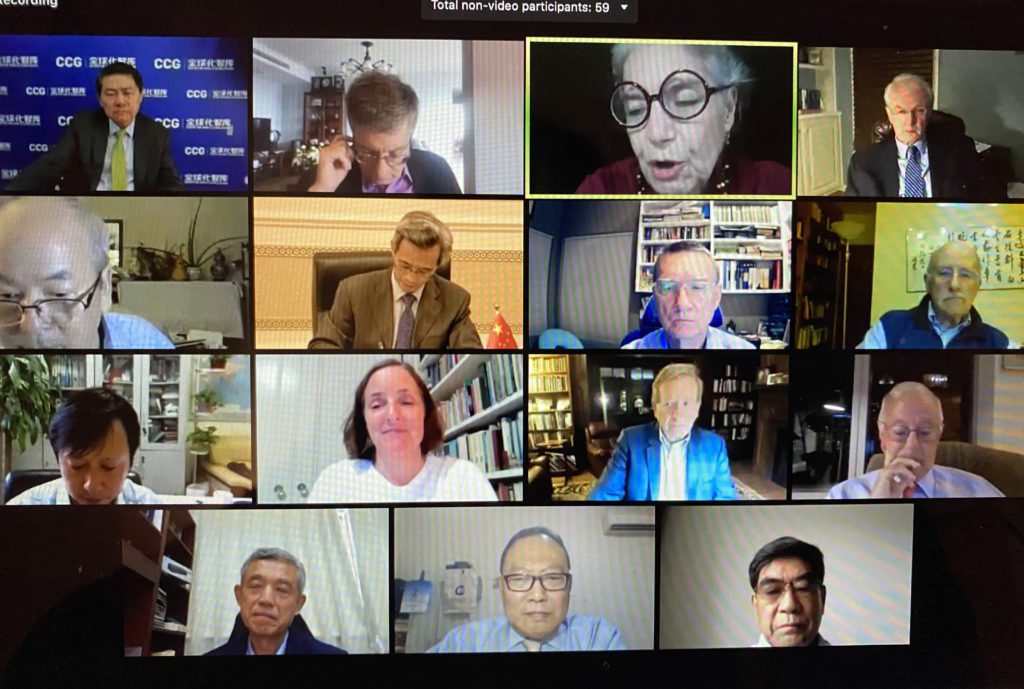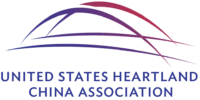With the blessing of President Carter, a special virtual meeting organized by The Carter Center and the Chinese People’s Association for Friendship with Foreign Countries, took place on August 5th, 2020 to discuss this important question. Chairman and CEO of USHCA, Governor Bob Holden, was among the American panelists invited. Given the U.S. election year politics and breakdown of bilateral diplomatic communications, participants are not optimistic of any short-term improvements. Fatalistic views – “be prepared for the worst” – and optimistic views – “it will get better after November” – coexist and have yet to be proven out.
What is clear is to stabilize and rebuild the U.S.- China relationship we need all the help we can get. For USHCA, efforts to promote people-to-people connections through exchanges in culture, education, and business will remain our focus.
This month, we encourage you to reflect on your personal ties to China (read about the Family Adoption story shared by Adam), participate in our event on 8/25 about Intercultural Competency, and learn something new about the changing China at our 8/27 event. As always, send us your stories and suggestions. We believe it is the people of our two countries working together and striving to understand each other that will make the difference.

Following are the meeting details:
What Is the Next Chapter in U.S. – China Relations?
中美关系何去何从
Context of this meeting:
Since 2017, there has been a massive deterioration of the bilateral relationship between the U.S. and China due to multiple factors. As the largest and second largest economies in the world, any friction and conflict between the U.S. and China will hurt the two countries, wreak havoc in the Asia Pacific region, and bring turmoil to the world. Stabilizing and improving the bilateral relationship and preventing a modern Cold War between the U.S. and China hinges not only on better understanding of each other at the government level, but also on healthy and productive exchanges and interactions between the society, local governments and non-governmental sector of the two countries.
The goal of this forum is threefold. First, speakers will offer their assessment of the current bilateral relationship and identify what they believe to be the causes of the steep decline from their own unique positions. Second, speakers will highlight what can still be done to keep a healthy and constructive relationship in the area they represent. Third, speakers will share their ideas on how to incrementally but fundamentally repair the relationship and prevent it from drawing the two countries and other nations into a conflict that will threaten global peace and prosperity.
Keynote speakers
Ambassador Lin Songtian, President, CPAFFC
Paige Alexander, CEO, The Carter Center
Panel Discussion
Moderator: Yawei Liu, Director, China Program, The Carter Center
Panelists
- Wang Huiyao, CEO, Center on China and Globalization
- Bob Holden, Chairman and CEO, U.S. Heartland China Association, former governor of Missouri
- Xue Lan, Co-Dean, the Schwartzman Scholars, Tsinghua University
- Jeffrey Lehman, executive associate dean, NYU Shanghai, former president, Cornell University
- Fu Chengyu, Former board Chaiman, China Petroleum & Chemical Corporation (Sinopec)
- John Holden, Senior Director, the McLarty Associates, former president, National Committee on US-China Relations
- Jan Berris, Vice President, National Committee on US-China Relations
- Li Yong, Senior Fellow and Standing Council Member, China Association of International Trade (CAIT)
- Xie Rongbin, deputy editor-in-chief, Global Times
- Elizabeth Knup, China Representative, Ford Foundation
Closing remarks
Hu Sishe
Vice President, Chinese People’s Association for Friendship with Foreign Countries
Steve Orlins
President, National Committee on US-China Relations
Guests:
Among the audience were about 20 USHCA board members and special guests.

